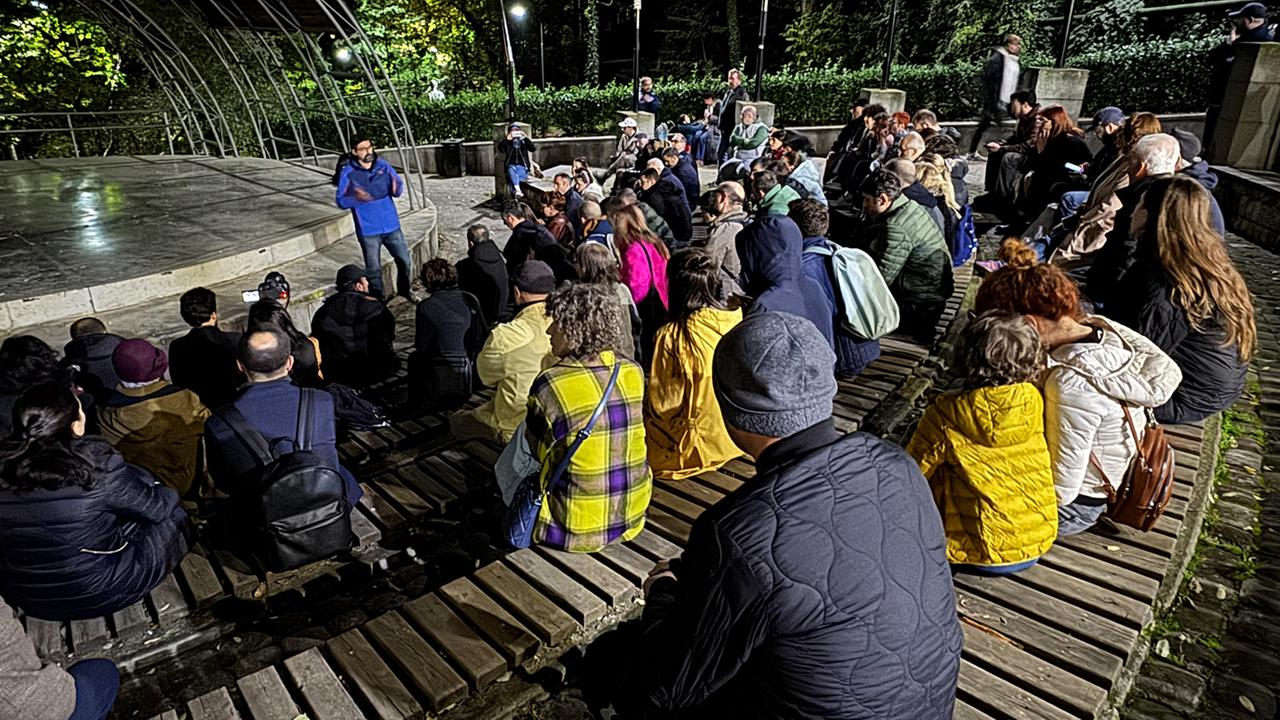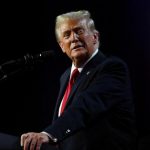There was no transfer of power in the parliamentary elections in Georgia, partly because the government was able to use its resources to commit sophisticated electoral fraud. But many do not want to accept this and are fighting for democracy.
An evening in Mziuri Park in the center of Georgia's capital Tbilisi. Around 50 people gathered on benches in front of an open-air stage. A dozen television crews recorded the meeting.
Simon Janaschia from the citizens' movement “Freiheitsplatz” speaks. She ran in the parliamentary elections on October 26th together with the opposition alliance “Strong Georgia”, which received almost nine percent of the vote and thus 14 seats in parliament.
But like the other opposition parties, they do not want to accept their mandates because the election was stolen from the voters. The Central Election Commission awarded the ruling party “Georgian Dream” 54 percent and thus an absolute majority in parliament.
“Not alone”
Janaschia, who works as a teacher, and his colleagues are now fighting against frustration and depression among the population: “We want to encourage people: They are not alone. There are others who also want democracy, regardless of international support.”
Their goal is to organize a permanent protest movement. Janaschia acts as a moderator and encourages listeners to express their own ideas and to resist sliding into an authoritarian state in everyday life. Many are speaking out. It's respectful, some receive applause.
Against venality
First, they organize themselves via website and Facebook, which is still an important debate platform in Georgia. You develop a manifesto. The main points are provided in a summarized form so that they can be downloaded and displayed on the walls of houses or in the subway. An important point for Janaschia and his colleagues is to organize protests non-violently and within the legal framework.
They also want to get people out of the propaganda bubbles and shake them up: “What kind of system do we want, do you want to be bought?”
Janaschia reports on a coordinator who was traveling in the regions of Georgia. Many there asked him how much they would get from him for their vote. Renting out your own vote or your own ID card has become a common saying, says Janaschia.
15 million euros for Voter bribery
Hans Gutbrod, professor at Ilia State University in Tbilisi, speaks of “bribery on an unprecedented scale, mass intimidation and some forms of election manipulation” in an initial analysis of the parliamentary election on October 26th.
Coordinators from the governing party distributed between the equivalent of 35 and 100 euros in the regions, some as vouchers. The domestic secret service, in turn, made sure that these coordinators did not put too much of the money into their own pockets. According to rough estimates, the governing party spent the equivalent of 15 million euros on bribing voters, said Gutbrod.
In addition, there was massive pressure, particularly on population groups such as ethnic minorities, social welfare recipients and relatives of prison inmates. In the three previous terms in office, the “Georgian Dream” has also gained control over the most important institutions, especially in the justice system.
This is now becoming clear as election observation organizations fail with their complaints to the courts despite extensive evidence of violations of electoral law. That is why civil society and the opposition are calling for an international investigation and an early election under international supervision.
Lack of resources and concepts
However, previous surveys by independent and opposition-affiliated institutes also showed majorities for the governing party, albeit closer to 40 percent than 54 percent.
The opposition lacked the resources and convincing concepts for a change of power, like the one achieved by the “Georgian Dream” with billionaire Bidzina Ivanishvili in 2012. She had turned the election into a fateful decision between the EU and Russia, but was unable to defeat the ruling party. This had presented itself as the only peace party that could prevent a “second front” against Russia and mobilized deep-seated fears among the population.
What is striking about the protests against election fraud is that far fewer young people are taking part than at the protests against the “foreign influence” law in the spring.
The established “Shame Movement” withdrew completely from the public eye. She initially declared that she would register as a “foreign agent” with the Ministry of Justice due to her foreign financing, but this resulted in massive criticism from civil society. In addition, there were massive propaganda campaigns against its members by the government.
Parliamentary seats remain empty
The opposition parties are increasingly relying desperately on mass protests. They see no point in taking up their parliamentary mandates. Teona Akubardia refers to her experience as an independent MP during the last legislative period: her legislative proposals were not even discussed in the committees. As a result, she was prevented from speaking about her issues in the plenary session.
Akubardia joined former Prime Minister Giorgi Gacharia's “For Georgia” party. He is also relying on international pressure not to recognize the newly elected parliament and on sanctions against Ivanishvili and his loyalists. Otherwise, he expects Georgia to slide into an authoritarian or dictatorial system like in Russia.
Decisions from above
Janaschia also had negative experiences with parliament as a consultant for education reforms. The members of the ruling party did not consider the experts' suggestions and instead waited for announcements from the government. Former government members have reported in recent years that cabinet members did not make decisions themselves, but instead turned to Ivanishvili.
The extremely wealthy businessman has not made any public statements since election day. He had been nominated as his party's main candidate, but in recent years he had shown aversion to the lowliness of everyday politics and stayed in the background.
Janaschia now hopes to organize resistance from society against the oligarch system and strengthen people's feeling that they can make a difference in their country. And thus also counteract the mood of young people to look for their own future abroad.





